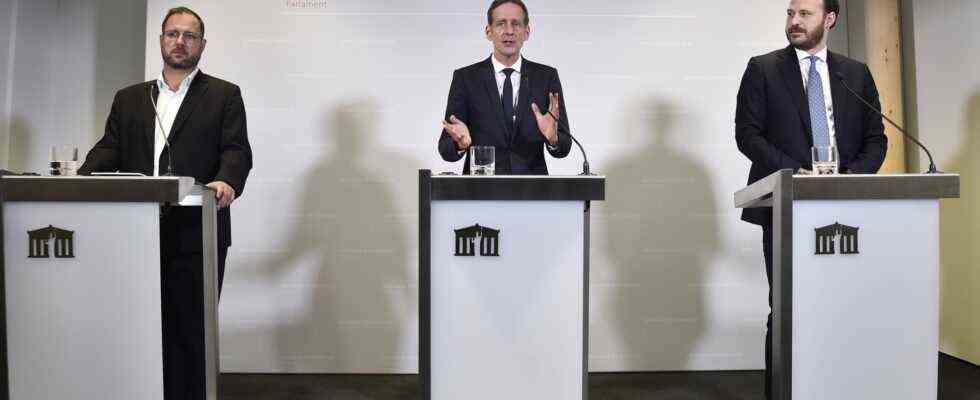Status: October 13, 2021 2:39 p.m.
The corruption allegations against Austria’s ex-Chancellor Kurz are to be investigated by a new U-Committee. The opposition has agreed on this. So far, only the tip of the iceberg may be visible, it is said to justify.
In Austria, the opposition parties have agreed on a new committee of inquiry into the corruption investigations against the ruling ÖVP and ex-Chancellor Sebastian Kurz. The body should ideally be set up in November, said representatives of the opposition. The parliamentarians want to know whether the former head of government has promoted his ascent with embellished surveys, there has been a post charter and how far influence has been exerted on investigations by the judiciary.
The SPÖ MP Jan Krainer said that so far only the tip of the iceberg may have become visible. The FPÖ MP Christian Hafenecke said: “The ÖVP has intervened far more in the mechanisms of the state than was actually feared.” Nikolaus Scherak from the liberal Neos said the “system of power calculation” must come to an end.
The proposal is to be submitted to the National Council today. Thereafter, the rules of procedure committee must decide within eight weeks. The government factions do not need to approve the U-Committee – on the other hand, an objection to the subject of the investigation is possible, for which a majority would again be required. The ÖVP would have to convince the Greens, as their coalition partner, to vote against it. Even that would not automatically prevent the U-Committee, because in such a case the opposition could turn to the Constitutional Court, which then decides.
Allegations: breach of trust, bribery and corruption
The public prosecutor’s office is investigating a total of ten suspects on suspicion of breach of trust, bribery and corruption. Kurz’s team is said to have supported the 35-year-old’s career through a collaboration with a media company that was also financed from taxpayers’ money. Kurz and the media house deny the allegations.
Kurz resigned as Chancellor on Saturday evening under the pressure of the investigation. But he remains party leader and was unanimously elected by the ÖVP parliamentary group as their new boss.
Schallenberg wants to continue Kurz’s course
The new Austrian Chancellor Alexander Schallenberg has since announced a continuation of the course taken by his predecessor. He will act “in close coordination” with his ÖVP party colleague Kurz, he said yesterday in his government statement in the National Council in Vienna.
There was sharp criticism from the opposition at the special session in the National Council. The leader of the Social Democrats, Pamela Rendi-Wagner, accused Schallenberg of having lost a lot of trust on the first day: “Whoever follows blindly cannot lead,” she said. “Today’s government reshuffle is a farce, because Kurz is pulling the strings.” Schallenberg belongs to the close environment of his predecessor.
Against Kurz, investigations into the suspicion of false testimony before a parliamentary committee of inquiry into the so-called Ibiza affair have been ongoing for a long time. In May 2019, the scandal led to a break in the governing coalition between the ÖVP and the right-wing populist FPÖ and to early elections.

